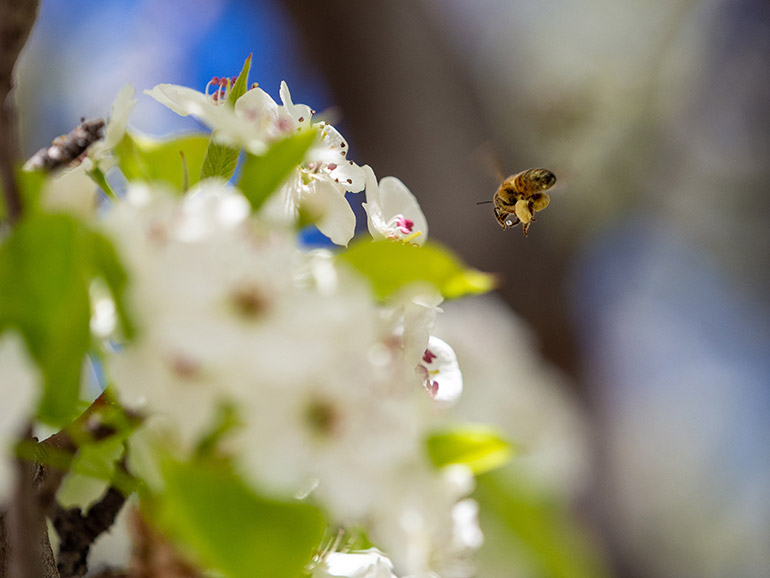
The UN Decade of Ecosystem Restoration designation is intended to raise awareness of the importance of protecting and reviving ecosystems around the world for insects, plants animals and all other forms of life on the planet.
Researchers offer ideas to reimagine, recreate and restore our relationship with the environment
On World Environment Day (June 5), the United Nations will officially announce that the years 2021 to 2030 will be designated the UN Decade of Ecosystem Restoration. This global designation is intended to raise awareness of the importance of protecting and reviving ecosystems around the world and moving toward a sustainable future.
UBCO experts are available to comment on how to restore and protect ecosystems, rewild gardens and create sustainable consumer behaviour to help achieve a greener relationship with the environment.
Ecosystem restoration
Dr. Adam Ford
Assistant Professor, Irving K. Barber Faculty of Science
Canada Research Chair in Wildlife Restoration Ecology
- Wildlife connectivity and road ecology
- Human-wildlife conflict
- Restoring wild food security
- Indigenous-led restoration
Dr. Karen Hodges
Professor, Irving K. Barber Faculty of Science
- Post-fire and post-logging ecosystem restoration
- Grassland restoration
Nancy Holmes
Associate Professor, Faculty of Creative and Critical Studies
- Using art to raise awareness of wild pollinators: Border Free Bees
- Empowering communities to engage in solutions for habitat loss
- Transforming urban sites into pollinator pastures
Dr. Bob Lalonde
Associate Professor, Irving K. Barber Faculty of Science
- Strategies to improve insect diversity in an urban setting
Dr. Astrida Neimanis
Associate Professor, Faculty of Creative and Critical Studies and Irving K. Barber Faculty of Arts and Social Sciences
- Water, wetland and oceans restoration
- Human imagination of and relationships to damaged ecosystems
- Arts-sciences collaborations on restoration
Dr. Rebecca Tyson
Professor, Irving K. Barber Faculty of Science
- Restoring agricultural landscapes for wild bees
Waste management
Dr. Cigdem Eskicioglu or Dr. Abbas Milani
Professors, School of Engineering
- Development of biodegradable single-use surgical gloves
Sustainable building practices
Dr. Lukas Bichler
Associate Professor, School of Engineering
- Clean energy technology
- Sustainable batteries
Dr. Solomon Tesfamariam
Professor, School of Engineering
- Management of aging infrastructure
- Building with sustainable products such as tall timber
Sustainable living
Dr. Aleksandra Dulic
Associate Professor, Faculty of Creative and Critical Studies
- Media for social change
- Sustainable water practices
- Human-water relationships in the Okanagan
- Indigenous-led restoration initiatives
Dr. Annamma Joy
Professor, Faculty of Management
- Pollution generated by wine and fashion industries
- Wine and fashion industry sustainability
Dr. Nathan Pelletier
Assistant Professor, Irving K. Barber Faculty of Science and Faculty of Management
NSERC/Egg Farmers of Canada Industrial Research Chair in Sustainability
- Agricultural practices that rebuild healthy soil
- Ecological impact of food production
About UBC’s Okanagan campus
UBC’s Okanagan campus is an innovative hub for research and learning founded in 2005 in partnership with local Indigenous peoples, the Syilx Okanagan Nation, in whose territory the campus resides. As part of UBC—ranked among the world’s top 20 public universities—the Okanagan campus combines a globally recognized UBC education with a tight-knit and entrepreneurial community that welcomes students and faculty from around the world in British Columbia’s stunning Okanagan Valley.
To find out more, visit: ok.ubc.ca